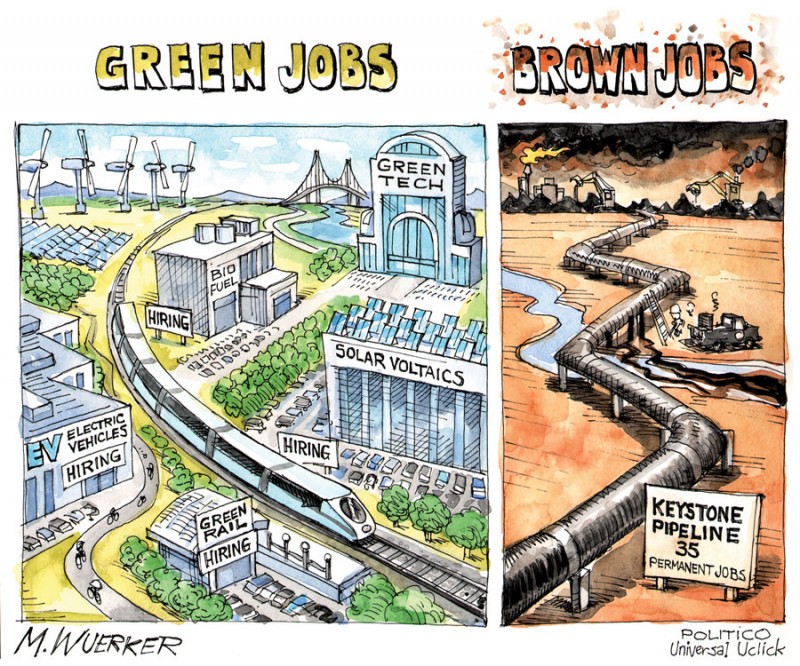I can’t think of a single reason why we shouldn’t stop subsidizing oil production in this country. Even if we don’t pour money into alternative, sustainable energy, if we stop subsidizing fossil fuels then I believe that the market would create plenty of increased demand for alternatives. In fact, as I’ve said before, we should increase taxes on products that pollute and which use non-renewable resources.
Seriously, I don’t even care if gasoline prices go through the roof. If it creates the incentives that result in the development of batteries that can store enough energy to power a car for 500 miles (and can be recharged in minutes), then who cares about the cost of gas? And solar cells that cost one-tenth of today’s models, then who cares about the cost of coal?
UPDATE: The IMF agrees with me.



7 Comments
When living in Berkeley in the 1960s, I met a family from England. At that point, gas was comparitively $8 a gallon in England. People walk and stay thin in England or use mass transportation.
I can just about think of a reason to subsidize fossil fuels: if that was the only source of energy in the country and you wanted to make sure that a modest industry for local energy continued to exist, for national energy security reasons. For instance if you’re Norway and all you have is North Sea oil, you might want to keep that industry going even if importing alternative fuels becomes cheaper.
But the US doesn’t suffer from this problem. There are plenty of local non-fossil fuel alternatives. So there’s no national energy security imperative. A non-distorted market would work fine here.
In a truly free market where the government does not take part in picking winners and losers, NO business would be subsidized. Government would pay for things that benefit the public good almost equally, things like roads, bridges, any infrastructure. Primary and secondary education and even college, and health care within reason. Mortgage subsidies for people who earn enough to buy homes but no subsidies for those who can’t? Not so much. Any sort of production of goods? Not so much.
If you consider one of the roles of government to mitigate economic volatility by counter-cyclic stimulus (part of Keynesian policies), then you might also consider government subsidizing industries you don’t want to disappear.
I’ll take fallacies for $1000, Alex. “Government would pay for things that benefit the public good almost equally, things like roads, …” What is the base rate fallacy?
Investment in road construction and repair, especially highways, overwhelmingly benefits those who live in rural and exurban areas more than urban areas. About 80% of the U.S. population lives in or around a major metropolitan area, while only about 60% of the U.S. population drive cars regularly (not necessarily daily). That is, significant investment in public transportation has the potential to benefit more people than investment in roads.
The real problem with statements like the government should not “take part in picking winners and losers,” but instead “pay for things that benefit the public good almost equally,” is that it relies on the assumption that we know, in advance, how to make the right decisions. If were able to know exactly how to maximize the public good and invested in that, the government would be picking the winners. Perhaps the technology that Solyndra was developing could have benefited 100% of the population with a cheap and clean source of electricity. Who knows…it still might. It’s not like that technology and knowledge just disappeared. Instead, the technology was sold to other companies, who also hired the employees. The company is not the same as the technology.
Sure, if the U.S. government completely took themselves out of the game of investing in companies trying to develop new technologies, the free market would eventually produce the best energy innovations. But they wouldn’t come from American companies. They would come from Chinese companies, because China is investing heavily in this research. The reason Solyndra failed was because they couldn’t compete with Chinese companies that were being underwritten by that government.
Frankly, I’m sick of libertarian nonsense and free market zealotry. In the real world, the government has a vital role to play in funding research, which inherently involves picking those likely to be winners. And, yes, sometimes that means picking wrong.
Michael – brilliantly said.
The free market and level playing field competition is the right answer for many products – and the tong answer for core infrastructure and break through futures. Anyone who doubts this should red Clayton Christiansen’s “The Innovators Dilemma.”
Simply put, smart big business doesn’t invest in things that do not show a good return on investment – and if they did, their management would be fired. And great breakthroughs, and core infrastructure, how poor returns for. Single business.
If it wasn’t for DARPA we might not have the Internet. If it wasn’t for government stimulus and defense, we might not have interstate highways. And the future private space industry wouldnt exist if he government hadnt made it possible.
Government plays a critical role in helping create the proper conditions for the free market to operate. We must have both. And anyone that thinks it can be one with just ine side should look at Russia and Somalia.
One side alone fails. Oth sides working together is he bet solution,
really nice post, i absolutely love this internet site, keep on it
[url=http://ownchristianlouboutinsa.0fees.net]christian louboutin online store[/url]
http://christianlouboutin4cheapa.web1337.net